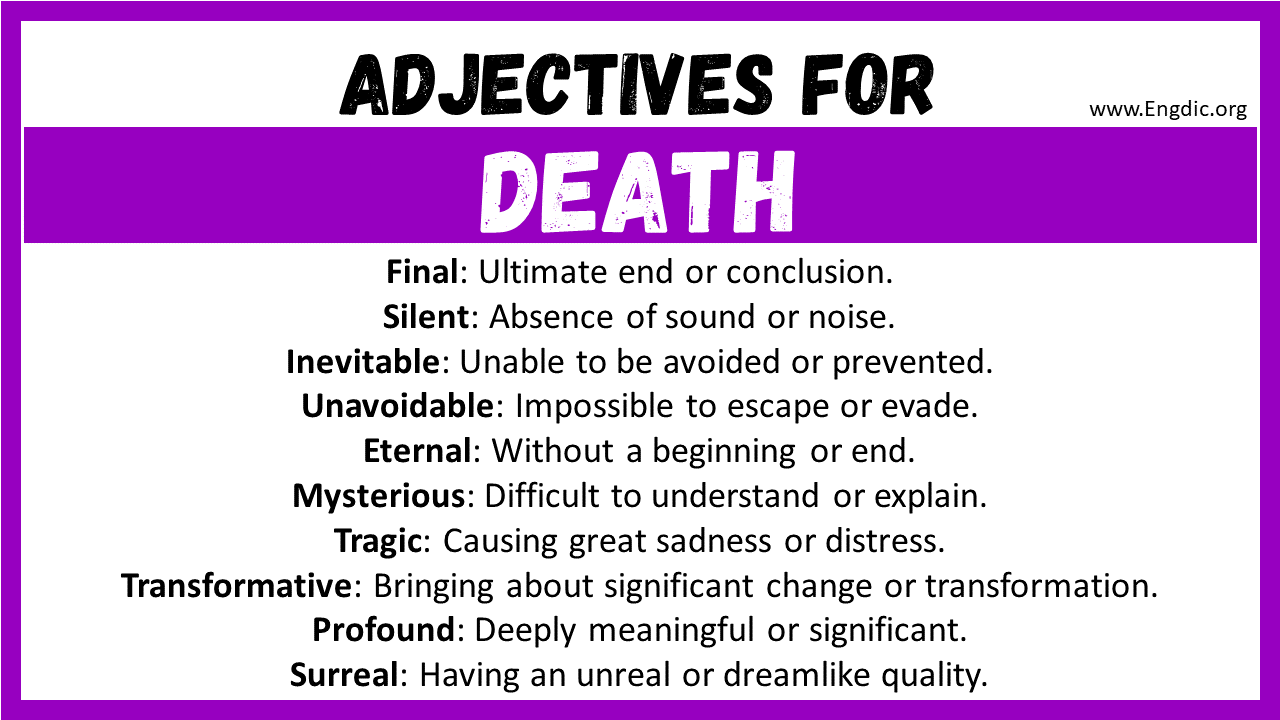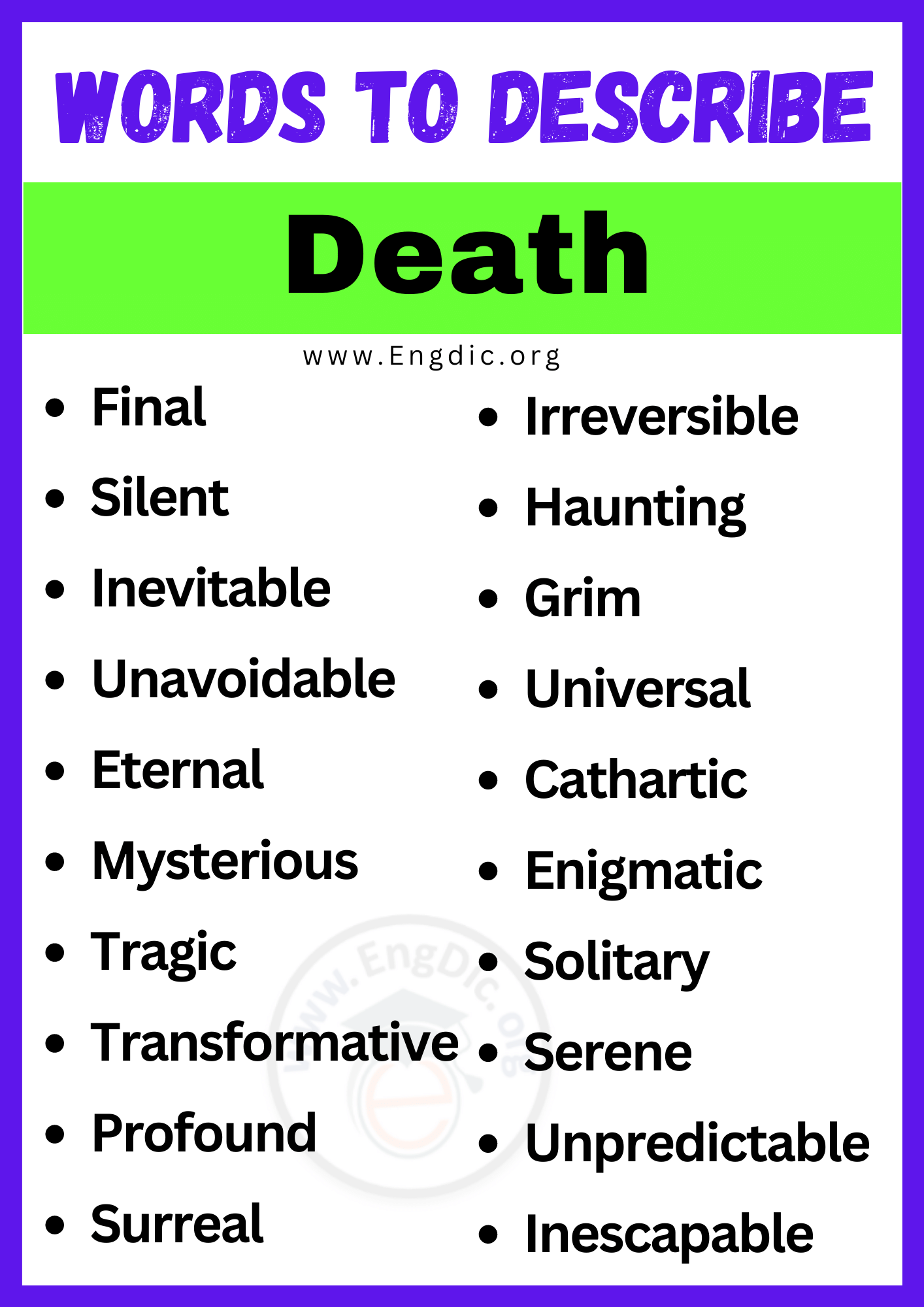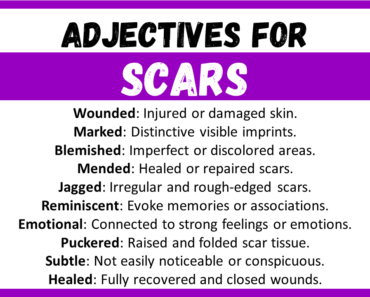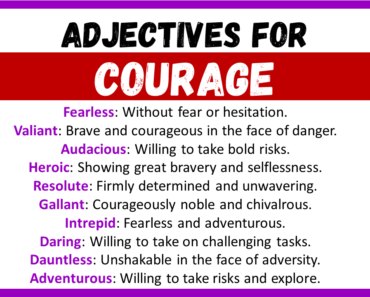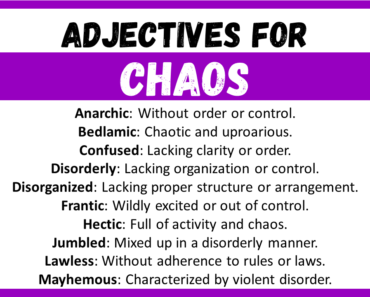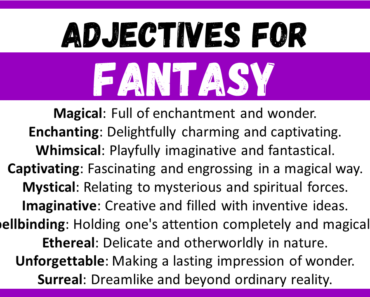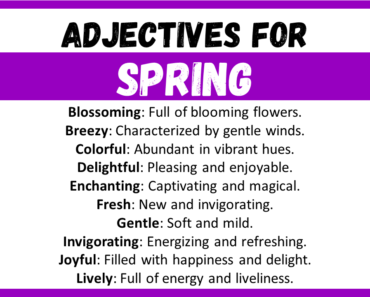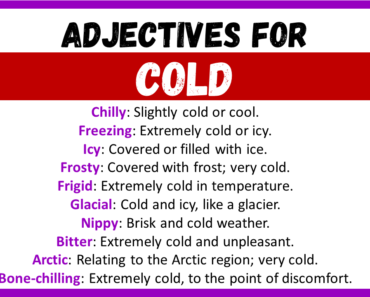Death, the inevitable and irreversible cessation of life, is a concept that has puzzled and fascinated humanity since time immemorial. While it is a subject shrouded in mystery and often surrounded by a veil of fear, there are various words that attempt to encapsulate the complexity of this phenomenon. From somber and mournful to serene and transcendent, words used to describe death reflect the myriad emotions and perceptions associated with this profound transition. In this blog post, we will explore some of the evocative words that help us navigate the depths of this enigmatic state of being.
Adjectives for Death
Here are the 20 Most Popular adjectives for death:
- Final
- Silent
- Inevitable
- Unavoidable
- Eternal
- Mysterious
- Tragic
- Transformative
- Profound
- Surreal
- Irreversible
- Haunting
- Grim
- Universal
- Cathartic
- Enigmatic
- Solitary
- Serene
- Unpredictable
- Inescapable
Adjectives for Death in the Book Thief:
- Inevitable
- Omnipresent
- Grim
- Compassionate
- Melancholic
- Narrator
- Haunting
- Thoughtful
- Poignant
- Resolute
Adjectives for the Death Penalty:
- Controversial
- Harsh
- Capital
- Legal
- Ultimate
- Deterrent
- Contentious
- Irreversible
- Punitive
- Divisive
Adjectives for Death Anniversary:
- Commemorative
- Solemn
- Reflective
- Emotional
- Memorial
- Bittersweet
- Reminiscent
- Reverent
- Nostalgic
- Remembrance
Adjectives for Death Wish:
- Desperate
- Suicidal
- Reckless
- Morbid
- Dangerous
- Forbidden
- Unfulfilled
- Compelling
- Troubled
- Secretive
Words to Describe Death with Meanings
- Final: Ultimate end or conclusion.
- Silent: Absence of sound or noise.
- Inevitable: Unable to be avoided or prevented.
- Unavoidable: Impossible to escape or evade.
- Eternal: Without a beginning or end.
- Mysterious: Difficult to understand or explain.
- Tragic: Causing great sadness or distress.
- Transformative: Bringing about significant change or transformation.
- Profound: Deeply meaningful or significant.
- Surreal: Having an unreal or dreamlike quality.
- Irreversible: Unable to be reversed or undone.
- Haunting: Eerily persistent or lingering in memory.
- Grim: Harsh, somber, or depressing.
- Universal: Relating to everyone or everything.
- Cathartic: Providing emotional release or relief.
- Enigmatic: Mysterious, puzzling, or ambiguous.
- Solitary: Alone or isolated.
- Serene: Calm, peaceful, or tranquil.
- Unpredictable: Not able to be foreseen or anticipated.
- Inescapable: Unable to be avoided or evaded.
Example Sentences for Death Adjectives
- The final breath escaped his lips, marking the end of his journey.
- The room fell silent as news of her passing spread through the hospital.
- Death is an inevitable part of the circle of life.
- Despite his efforts, he could not escape the unavoidable grasp of death.
- Her memory will live on in the eternal realm of our hearts.
- The cause of his sudden demise remained a mysterious enigma to his family.
- The loss of a loved one can be an incredibly tragic
- Death has a transformative power, changing our perspectives on life.
- The profound impact of his death reverberated throughout the community.
- The accident left a surreal feeling of emptiness in their hearts.
- His passing was an irreversible event that altered the course of many lives.
- The haunting memories of his death haunted her dreams.
- The room grew heavy with a grim atmosphere upon hearing the news.
- Death is a universal experience that transcends all cultures and borders.
- Grieving can be a cathartic process for those left behind.
- The circumstances surrounding his death remained enigmatic and unresolved.
- In her final moments, she found solace in the serene beauty of nature.
- The unpredictability of death adds an air of unpredictable mystery to life.
- No matter how hard we try, death is inescapable in the end.
- The concept of death holds an unavoidable presence in our lives.
Explore More Words:
FAQ’s
How to describe death in writing?
Death can be described in writing by using words that evoke emotions, such as “finality,” “sorrow,” “transcendence,” or “peaceful release,” to convey the profound and complex nature of this inevitable part of life.
